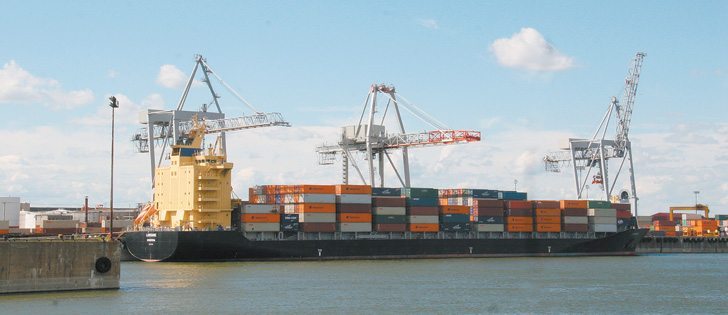Changes in the railway revenue cap that open the door to much higher grain shipping costs this year re-emphasize the need for legislation to give shippers the right to service agreements with railways.
The Canadian Transportation Agency recently announced it would raise the rail revenue cap by 9.5 percent Aug. 1.
Farm groups instantly criticized the increase as unwarranted and said the formula used to determine it must be changed.
The CTA each year calculates an inflation factor called the volume-related composite price index (VRCPI) to apply to the revenue caps on Canadian National Railway and Canadian Pacific Railway.
Read Also

Growth plates are instrumental in shaping a horse’s life
Young horse training plans and workloads must match their skeletal development. Failing to plan around growth plates can create lifelong physical problems.
The VRCPI can change significantly year to year. It rose seven percent in 2010 and fell 7.4 percent the year before, but since its creation in 2000-01 there was an average increase of 2.1 percent.
Last year the CTA changed the way the index calculates the railways’ cost of capital and pensions, which contributed to the uniquely large increase this year.
Farm groups, such as the Western Canadian Wheat Growers Association and Keystone Agricultural Producers, say the calculations should not account only for the railways costs, but should also recognize the efficiencies implemented that should have created savings.
In a system with many rail companies, competition would ensure a portion of those savings would pass on to customers. But in Canada, rail is a duopoly and competition is not as intense as in an ideal free market.
The Wheat Growers suggest that allowance for wages and benefits should reflect what they would be in a competitive marketplace such as in the trucking industry. That would give the railways more incentive to keep their costs in line.
If the railways offered exceptional service, cost increases might not be so galling, but the experience of the past several years is one of immense frustration for producers and other shippers.
While shippers face penalties if they fail to meet the railways’ requirements, such as loading times, the railways face no penalties if they fail to deliver the goods on time.
These long-standing and mounting frustrations led to the federal Rail Freight Service Review, which in 2010 made several recommendations that were mostly accepted by the government last year.
First among the review’s recommendations was provision for level of service agreements backed by legislation that would enforce penalties for failure to perform.
The government appointed former Alberta treasurer Jim Dinning to meet with the railways and shippers to develop a template for service agreements and to form a dispute resolution process.
Dinning’s mandate expires this month and a shipper representative has said that little progress was made because of the railways’ failure to compromise.
To his credit, federal agriculture minister Gerry Ritz says he wants new rail legislation to move ahead “sooner rather than later,” but the lead on the file is transport minister Denis Lebel and he has made no timing promise and awaits Dinning’s report.
A bill will likely not appear until at least autumn, two years after a rail review panel made the recommendation.
The government must not let this legislation lose urgency. Canada’s resource industries, with agriculture a lead component, have enormous opportunities supplying the strong demand for food and raw materials in fast growing developing nations.
Efficient, affordable rail service is vital to capitalize on those opportunities, given Canada’s geography.
Because competition is inadequate, government must act to drive that efficiency and make transportation affordable.














